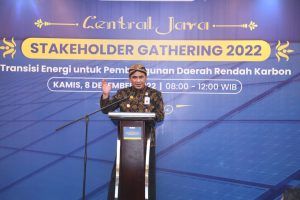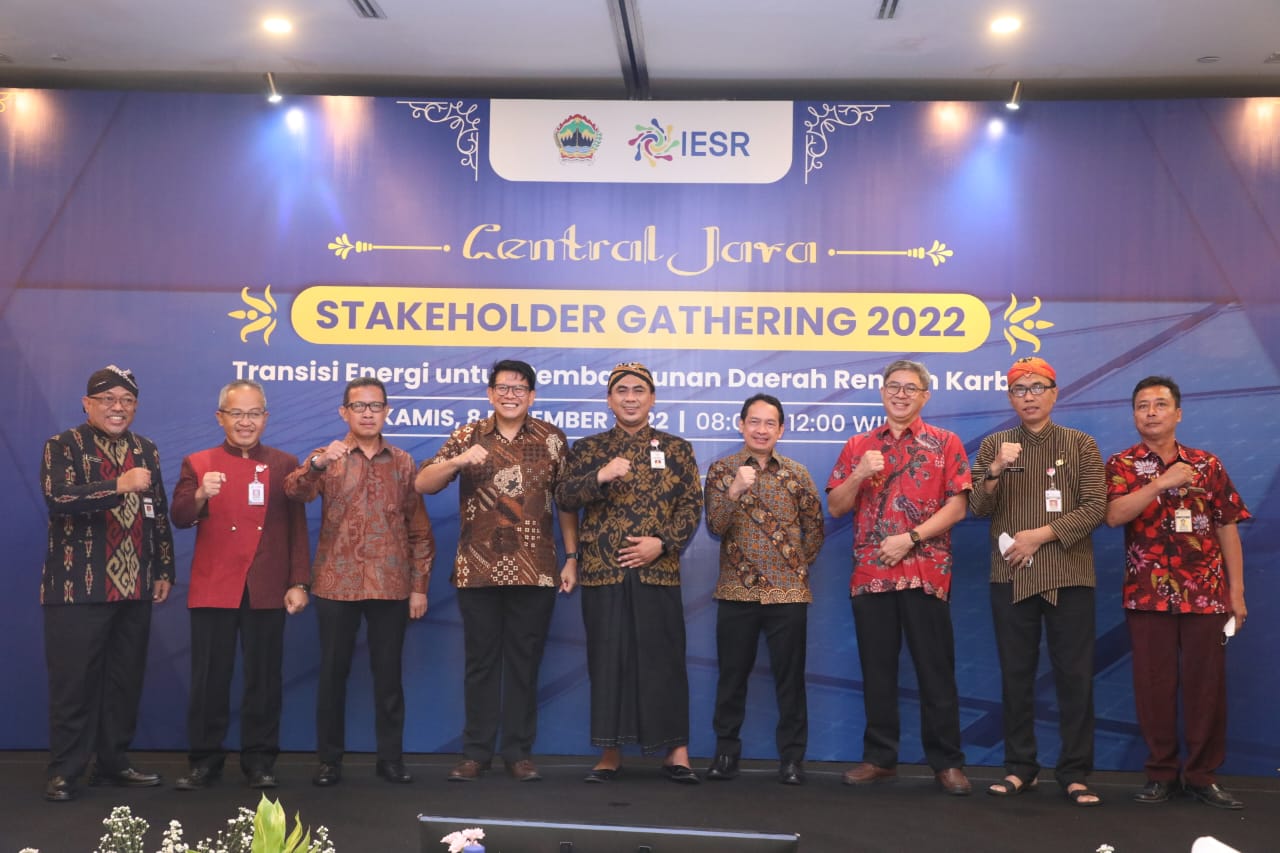Semarang, December 8, 2022 – The energy transition has become urgent as the world responds to the challenge of building a more resilient energy system. Thus, there needs to be synergy between the government and the private sector. The Institute for Essential Services Reform (IESR) and the Central Java Provincial Government held the Central Java Stakeholder Gathering 2022 with the theme’ energy transition for low-carbon regional development’ to encourage the energy transition in Central Java.
Fabby Tumiwa, Executive Director of the Institute for Essential Services Reform (IESR) explained, Central Java has an important role as a beacon of energy transition in Indonesia. Fabby said that the rapid development of the energy transition in Central Java could be a lesson for other regions that leadership, regional innovation and collaboration are the keys to the success of the energy transition’s success toward low-carbon development.
“Overcoming the threat of the climate crisis is very relevant to what is happening in Central Java. Various practices of using renewable energy in Central Java have occurred and illustrate how the community is able to encourage the energy transition with their own efforts supported by the government to make innovations. This is what we call the Gotong Royong Energy Transition,” said Fabby Tumiwa.
Moreover, the Deputy Governor of Central Java, Taj Yasin Maimoen, stated that Central Java had made a Regional Energy General Plan (RUED) as a guideline for energy development. It has been implemented through Regional Regulation (Perda) Number 12/2018, stipulated on December 19, 2018. This regulation regulates energy conservation, conservation of energy sources, and energy diversification. The government is also pushing for energy autonomy in the villages and utilizing the energy potential in each town.

“In one village in Magelang, we saw a huge potential for renewable energy. It is impossible for the provincial government to work without the paradigm of its people. In their case, the farm has been centralized, owned by the community and made into one place. There are hundreds of goats whose feces need to be processed. Not only as fertilizer but can also be made as renewable energy,” said Taj Yasin.
Sujarwanto Dwiatmoko, Head of the ESDM Office for Central Java Province, explained that Central Java has made innovations related to renewable energy through projects such as Central Java Solar Province. This program is expected to help Central Java achieve an energy mix level of 23.32% in 2025.
“The most notable impact of Central Java Solar Province is the increase of capacity in rooftop solar power plants in Central Java from 0,1 MWp in 2019 to 22 MWp in 2022,” said Sujarwanto.
On the other hand, Widi Hartanto, Head of the Central Java Province Environment and Forestry Service (DLHK), his party is currently studying the reusability of wastewater and waste into new, renewable energy.
“This program aims to survey the characteristics of wastewater and garbage and hold focus group discussions related to waste management into renewable energy in cities such as Pati, Sukoharjo, Boyolali, Kab. Semarang, Karanganyar, Grobogan, Kab. Magelang, Magelang City, Temanggung, Klaten, Semarang City, Kab. Semarang, Kab. Karanganyar, Boyolali, Salatiga, and Kudus,” explains Widi.
To realize low-carbon development, M Arif Sambodo, head of the Department of Industry and Commerce in Central Java, emphasized that the industrial sector is the most significant contributor to carbon emissions. Thus, his party plans to strengthen partnerships with the local steel industry to supply solar panel production to reduce greenhouse gas (GHG) emissions.
“Currently, there are demands from consumers for the industry to start using new and renewable energy (NRE) so that it demands the industry to use NRE in its production process,” said Arif.
Meanwhile, Muhammad Iqbal, President Director of Jateng Petro Energi (JPEN) explained three strategies to support the energy transition: strengthening ecosystem institutions, solarpreneurship (creation of green jobs), and capacity building.
“JPEN is committed to encouraging a more massive energy transition, such as floating Solar PV, rooftop Solar PV, Solar PV training, carbon trading, and the construction of public electric vehicle charging stations (SPKLU) which are important parts of the electric vehicle ecosystem,” explained Iqbal.

